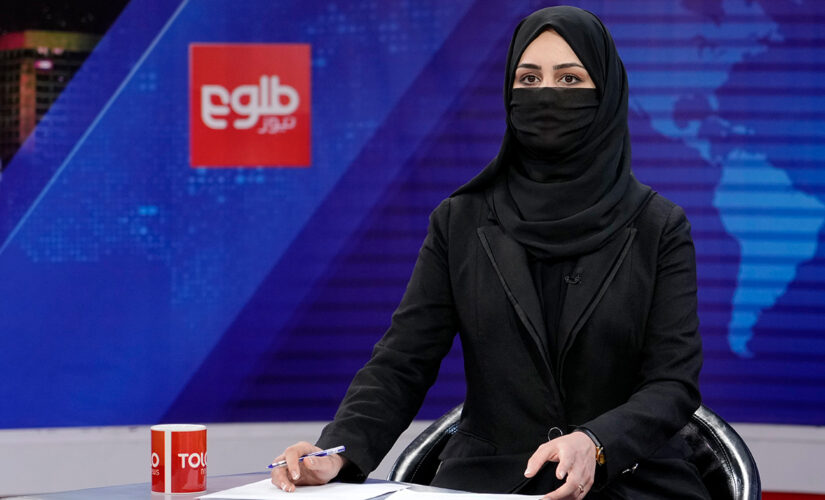NEWYou can now listen to Fox News articles!
The U.N. Security Council this week urged Taliban leaders to “swiftly reverse” policies and practices toward Afghanistan women and girls restricting their rights and freedoms – but overall, there’s little confidence that meaningful change will happen.
Just a week ago, the Taliban announced a rule forcing all women news anchors to cover their faces while on TV.
The Security Council released its statement Tuesday, two weeks after closed-door discussions, expressing its “deep concern regarding the increasing erosion of respect for the human rights and fundamental freedoms of women and girls in Afghanistan by the Taliban.”
Former Ambassador-at-Large for Global Women’s Issues Kelley Currie didn’t see the Taliban respecting the council’s request. She said the U.N. Security Council needed to show its seriousness by taking more substantive action.
TV anchor Khatereh Ahmadi wears a face covering as she reads the news on TOLO NEWS, in Kabul, Afghanistan, May 22.
(AP Photo/Ebrahim Noroozi)
AFGHAN REBEL GROUP ASKS FOR BIDEN’S SUPPORT, WARNS OF NEW TERROR THREATS
“The best way to [take action] would be to reinstate the travel ban on so that they can’t continue flying around on private jets and, you know, acting like they’re a legitimate government, which they definitely are not,” Currie said.
She added the Taliban’s treatment of women should come as no surprise, given previous warnings from women who’d lived under Taliban control. “They were trying to warn us before that the Taliban had not changed. We should have listened to the women. And the least we could do is listen to them now.”
Asila Wardak, who served as one of the Afghan delegates during 2019 negotiations with the Taliban in Qatar, described to Fox News Digital a “gender apartheid” in Afghanistan. Wardak, who also served as director general of U.N. affairs in the Afghan Foreign Ministry before the government’s collapse in August 2021, explained how women are being exiled from society, unable to participate in economic or social settings.
Afghan women chanting and hold signs of protest during a demonstration in Kabul, Afghanistan, March 26.
(AP Photo/Mohammed Shoaib Amin, File)
UN: MORE THAN 1M CHILDREN IN AFGHANISTAN COULD FACE SEVERE MALNUTRITION
She said that although the Security Council is now using harsher language, women still need to have a seat at the table. “U.N. agencies can focus more on bringing women and men and civil society activists and other actors from the country, inside the country and outside the country, and put [them at] one table with Taliban.”
She added, “women in Afghanistan are agents of change.”
CLICK HERE TO GET THE FOX NEWS APP
Sean Kilbane, an advocate for community allies, shared with Fox News Digital that the Taliban often single out women to retaliate against those who served the U.S. or the country’s previous U.S.-allied government. “Examples of this retaliation include forcing mothers, wives and sisters of those who made it out of Afghanistan and to America to regularly ‘check in’ with local Taliban leadership. Local Taliban commanders then brutally beat these women during these check-ins, often disfiguring their faces.”
Kilbane said that under Taliban-enforced Sharia law, innocent Afghan men, women and children face an “overwhelming sense of hopelessness.”




